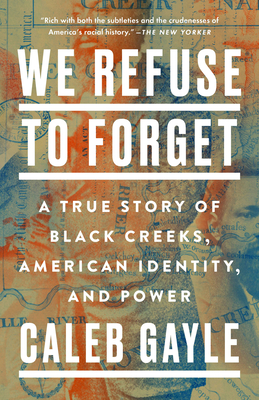What do you think?
Rate this book


272 pages, Paperback
Published June 6, 2023
“Imagine having to find blood that doesn’t exist—not because your father isn’t Creek, but because blood quantum was an arbitrary maneuver engineered by white men to determine how little land Indigenous people could keep. The goal was to disempower these people and their society… This moment showed Ron that blood quantum wasn’t science, it was thinly veiled racism that propped up a colonialist way of separating people to promote the economic and social interests of white America.”
“It is difficult to know true freedom when its boundaries are established by an oppressor. But that is the story of the Creek, and the stories of the Black and the Brown. The reason the Creek identity will always encompass the narrative of Indigenous and Black survival is that they share an oppressor.”
“There’s a simple reason Black lives are omitted from American history: the presence of Black lives in our history always indicts white America for generating prosperity on the backs of its own people. Black existence and success shatter the illusion that Americans are exceptional and that our ascent has been attained without keeping some of us down.”
“They refuse to forget, no matter how easy it is to do so. No matter how simple life could be if they accepted their Blackness without its former residence in the Nation that once accepted them, they are fighting for an identity, a complete identity. And they’re asking all of us to do what often seems too radical for America: remember.”